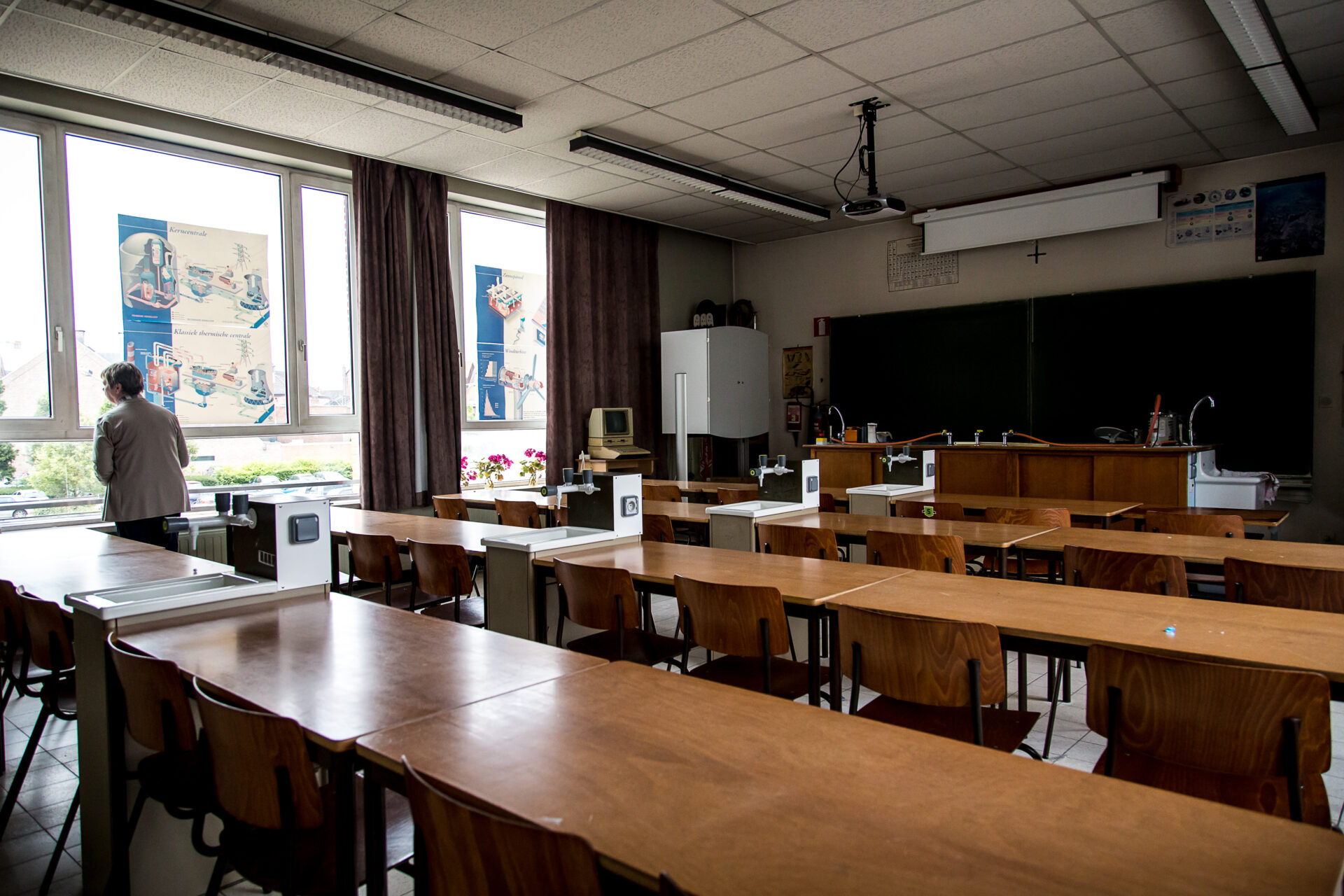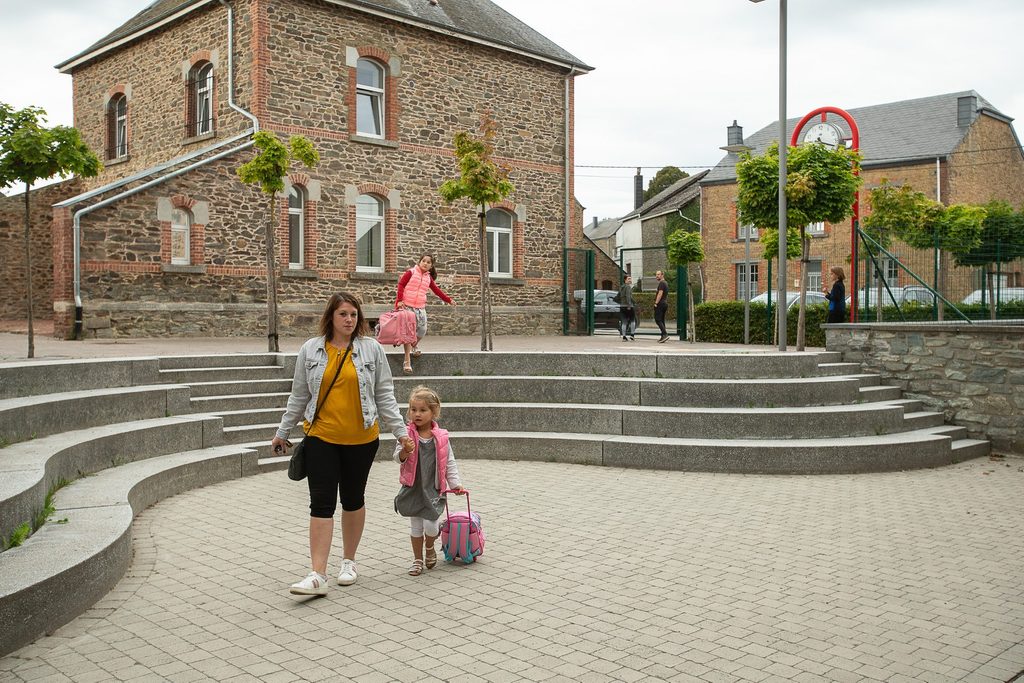Schools are facing increasing pressure to take drastic measures due to staff shortages, including stopping classes, resulting in pupils being forced to change schools during the academic year.
Teacher shortages in Dutch-language schools in Brussels have been raising concerns for years. The lack of staff in the community's education sector has already resulted in secondary schools being forced to scrap or modify exams. Teacher shortages have also been highlighted as the biggest threat to the quality of education.
Despite the number of unfilled vacancies dropping slightly, at least five schools are currently unable to offer a full week of classes. Some teach extra hours on different days to make up for the missing day. Earlier this month, two Schaerbeek schools – the Hendrik Conscience school and Kompas – resorted to emergency measures and closed classes altogether.
"These closures have a devastating effect on both pupils and their parents," said Molenbeek-Saint-Jean Councillor for Dutch-language education Saliha Raiss. "They are forced to look for a new school halfway through the school year. This means not only a new school environment but also different lesson plans and different teaching staff, which is a drastic change for both pupils and parents."
Temporary solutions
Brussels minister Sven Gatz, who is responsible for education in the Flemish Community Commission (VGC), told The Brussels Times that a solution had been found for the pupils at Hendrik Conscience. Here, classes in the fourth, fifth and sixth years were merged due to the departure of two teachers and excess pupils were told they had to look for a new school.
"A new teacher registered for a vacancy at the school and one of the two departing teachers realised that leaving mid-term complicated matters," he said. Another teacher will return from maternity leave after the Easter holidays. This means classes in two of the years can re-open. Gatz stressed that while this means teaching can continue up until the summer holidays, this is a fragile solution, and it is likely uncertainty will return before the 2024-2025 school year.

Credit: Belga / Siska Gremmelprez
"Additionally, while the teams at many schools in Brussels are either fully or partially complete, there are some schools where the shortage is more acute. What happened at these two schools may even happen again, and I realise that we are not going to find an immediate solution for every similar problem."
The temporary nature of solutions was criticised by Raiss, who said that in Molenbeek too, schools are constantly fighting to stay open. Due to the measures taken by Flanders – from giving grants and reimbursing the tuition fees of lateral entrants to companies "lending out" their employees – vacancies have often been filled by people without teacher training. They are usually left alone in front of the classroom due to shortages and are also not given the necessary guidance.
This is particularly problematic in Brussels, where many pupils are non-Belgian and require more support at school. "So the teacher shortage makes it almost impossible for us to provide quality education," argued Raiss.
Brussels-based measures?
In Brussels, principals and teachers are therefore stressing the need for structural change tailored to the Region. They also called for steps to make teaching more attractive, explaining that the well-intentioned Flemish policy of allocating more money to education is backfiring in Brussels, encouraging its teachers to move to Flanders.
Gatz looked to Flemish Education Minister Ben Weyts (N-VA) for solutions, stressing that there is one clear measure that could be taken to improve the situation in the longer term, namely the so-called "Brussels bonus" for teachers. He argued that this premium – similar to the one introduced for police officers 20 years ago in recognition of the fact that working in the capital was more complex and posed additional challenges – could encourage more people to teach in Brussels. "Financial support is justified in a more complex metropolitan education environment," Gatz argued.
However, Weyts is reluctant to implement measures that focus solely on the Brussels Region. "Such a measure would only attract teachers from elsewhere. Then there might be more teachers in Brussels, but shortages would arise elsewhere," Weyts' cabinet told The Brussels Times. "The only possible solution is to get more people interested in the teaching profession in general."
In the meantime, some 20 Dutch-speaking municipal schools in Molenbeek, Anderlecht and Brussels City will strike outside Weyts' office on Wednesday out of dissatisfaction with the teacher shortage. The initiative of the school boards and teachers of the municipal schools is receiving support from many parents, united in a new grouping 'SOS! Save our schools'.

